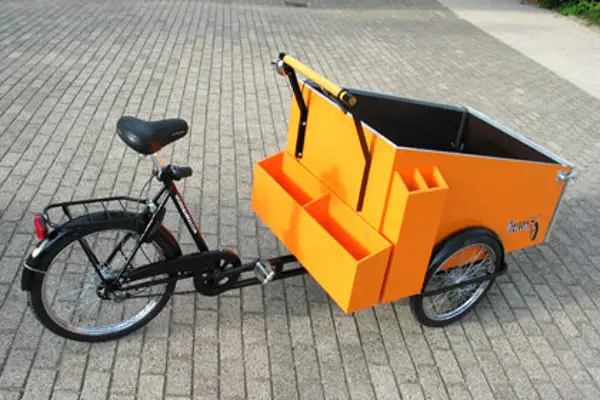The council share this latest news, Ed
A project that could see electric cargo bikes delivering goods across the Island by next year is to be considered by the Isle of Wight Council.
The council has appointed Island-based People Powered Community Interest Company (CIC) to lead a feasibility study into the introduction of an ‘e-cargo’ bikes scheme, which could replace van delivery for smaller goods, reducing congestion and harmful emissions at the same time.
Gov funding to support uptake of e-cargo bikes
This follows the announcement from the government that it is to introduce new funding to support the uptake of e-cargo bikes, after the result of its recent consultation into opportunities to deliver goods more sustainably in the UK.
Cabinet member for infrastructure and public transport, Cllr Ian Ward, said,
“This council is already committed to an ambitious sustainable transport and regeneration agenda and this exciting project is a good example of that. It can offer a really sustainable ‘clean’ alternative to traditional diesel vans making those short ‘last mile’ deliveries, which create pollution and congestion on our roads.
“E-cargo bikes already operate well in other UK and continental areas and can provide both economic and environmental benefits.”
Ideal testing ground
The Island could be an ideal testing ground for the project as there is relatively flat terrain, a network of existing traffic free trails connecting ports with some towns and villages and shorter journey distances compared to the mainland.
Will Ainslie, director at People Powered CIC, said,
“Cargo bikes are increasing in popularity and the addition of powerful electric motors means they can travel quickly and have longer ranges
“I would urge any Island businesses or organisations to get in touch with us to give their views on using e-cargo bikes or simply to find out more about the project at info@people-powered.org.uk “
The feasibility phase of this project is supported by the Isle of Wight Council’s Access Fund for Sustainable Travel programme, using funding which was secured competitively from the Department for Transport to deliver a wider programme of sustainable transport interventions being delivered through to April 2020.





